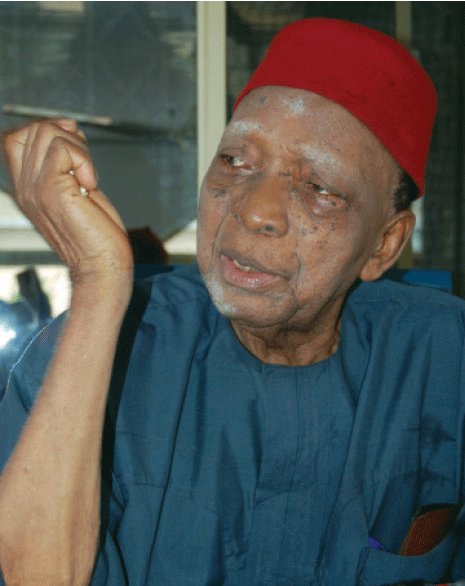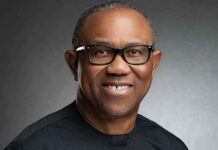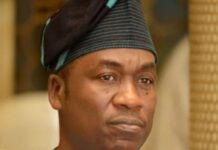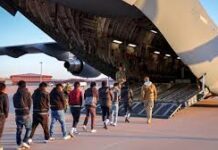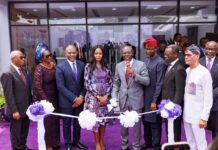By Ben Nwabueze
Ben Nwabuezeben
The Federal Military Government of Nigeria was therefore grievously mistaken to have dissolved and proscribed, by a decree of 1966, 26 named tribal or cultural organisations including the Igbo State Union, the Yoruba State Union, the Egbe Omo Oduduwa, Egbe Omo Yoruba, Ibibio State Union, Idoma Tribal Union, Ebira Tribal Union, Ijaw Progressive Union and Bornu State Union. Without specifically mentioning particular tribal or cultural unions by name, as did the 1966 decree, another decree of 1984 dissolves “all movements and organisations (howsoever known or designated) … meant to promote ethnic differences or likely to destroy or disrupt the unity of the Federal Republic of Nigeria.”
The method of the 1984 Decree is rather insidious. Whereas the 1966 decree left no doubt as to the identity of the associations affected, under the 1984 decree dissolution hangs over practically every tribal or cultural association of which it could be said by anyone, however ill¬-motivated, that it is “meant to promote ethnic differences or likely to destroy or disrupt the unity of the Federal Republic Nigeria”. With the risk of imprisonment for not less than five years, a tribal or cultural association can continue to function only at the risk of imprisonment for its executive committee members and managers.
It is wrong to regard ethnic organisations as constituting a danger to national unity. They may have exerted pressures on government on behalf of their respective groups, but such pressures would be there and have indeed continued without the tribal unions. It seems rather ironical that the military rulers who proscribed tribal unions for their role in sponsoring and promoting ethnic interests and conflicts in the political days should, without the prompting of the tribal unions, have fallen easy victims to the pressures of the very same ethnic interests. Ethnic interests are not the creation of ethnic organisations; they are there and will always be there without the ethnic organisations.
It is unfortunate that tribes and their organisations are associated in public perception with tribalism. Tribalism is undeniably evil, but it came with colonialism. As was aptly said by Nkrumah:
”There were tribes in Africa before imperialist penetration, but no ‘tribalism’ in the modern sense. Tribalism arose from colonialism, which exploited feudal and tribal survivals to combat the growth of national liberation movements. In the era of neo-colonialism, tribalism is exploited by the bourgeois ruling classes as an instrument of power politics and as a useful outlet for the discontent of the masses. Many of the so-called tribal conflicts in modern Africa are in reality class forces brought into conflict by the transition from colonialism to neo-colonialism… In the majority of ‘tribal’ conflicts, the source is the exploiting bourgeois or feudal minority in co-operation with imperialists and neo-colonialists seeking to promote their joint class interests… The process assumes the appearance of tribal confrontation, but in reality is part of the class struggle” (Class Struggle in Africa, 1970, pp. 59-60).
But being a pernicious evil, tribalism, he said, “should be fought and destroyed.” – ibid, p. 60
No less mistaken is the view that the survival of chieftaincy and other traditional institutions has, by “crystallising primordial identities”, been “real obstacles to nation-building”. There is a contradiction in saying, in one breath, that the survival of traditional institutions is a real obstacle to nation-building and, in another breath, that “the replacement of primordial ties and identifications by civil ones is ‘sheer impossibility’,” and that some mutual “adjustment” is what is called for, “so that the processes of government can proceed fully without threatening the cultural framework of personal identity’.” One cannot maintain both the impossibility of replacing the traditional social groupings (tribes, ethnic groups, etc) and at the same time that chieftaincy and other traditional institutions should be done away with, because they are a real obstacle to nation-building. A traditional social grouping without its traditional head and other traditional institutions is another manifest contradiction in ideas; the former implies, and cannot exist without, the latter.
Fostering mutual understanding, co-operation and solidarity between the ethnic nationalities and their organisations through integrative associations and conferences
The traditional territory of each ethnic nationality, large and small, is the homeland and “safe haven” of its members. From that safe haven, they need to extend the hand of fellowship to members of other ethnic nationalities, with the object of fostering mutual understanding, co-operation and solidarity between all groups through integrative associations and conferences, which are among the things necessary to redeem the illegitimacy stamped on the Nigerian state by the colonial circumstances of its origin. For, quite aptly has it been described as “the bastard child of imperialism” – see Karl Maier, This House has Fallen: Midnight in Nigeria (2000), p.7.
In addition to integrative conferences and other things, the means of legitimation should include the development of country-wide associations and institutions that aim at integrating members of different ethnic nationalities together for joint action in the pursuit of common economic, social and political purposes and interests.
The Ethnic Nationalities Conference is one such means aimed at mobilising and integrating the various ethnic nationalities for national reconciliation. It is the hope and expectation of the conference that “when all ethnic nationalities participate in it and understand the issues involved, they would be in a position to formulate an acceptable dream of the type of society that we want our children and grandchildren to inherit in order to leave behind for all posterity, a better Nigeria.”
The conference was convened as a prelude to the proposed national conference, which was envisaged as a Conference of Ethnic Nationalities, as a platform to bring together the ethnic nationalities, as the primary stakeholders in the Nigerian State Project, to negotiate the terms and conditions on which they can live together in peace, security, progress, prosperity and unity as one country under a common central government. It is a matter of grave distress that a national conference of the type envisaged has been aborted by the government and replaced by a government-appointed conference in which, out of a total of 492 delegates, the Federal Government nominated 89 delegates, and the state governments and Federal capital territory (FCT) 109 delegates, interest groups 204, while the ethnic nationalities “alongside socio-political and cultural groups will produce a total of 90 delegates”. As earlier stated, the method of selection of delegates has resulted in the ethnic nationalities qua ethnic nationalities not having any real representation at the conference. None of the members are really there as representing the ethnic nationalities, who are thus effectively side-lined.
Government has a role in finding a solution to the problem. It should itself commission a study on the phenomenon of ethnic nationalities, their numbers and identity, the distinctive attributes that characterise them, the relations existing between them, the causes of ethnic conflicts, and how mutual understanding, co-operation and solidarity can be fostered between them to enable them serve as instruments for nation-building. The research by Prof. Otite and others must be supplemented by government commissioned study.
Further, government should assume responsibility for organising, mobilising support for, publicising and for the funding of the Ethnic Nationalities Conference. It is not something to be left to private initiative alone in a territorially-extensive country where the ethnic nationalities are dispersed throughout its entire length and breadth. They must be effectively mobilised for future conferences to be held, say, every other year or so.
President Jonathan’s speech at the inauguration of the National Conference is remarkable for not addressing the issue as to how unity can be achieved or by what concrete means apart from exhortations
President Goodluck Jonathan’s speech while inaugurating the national conference on Monday, March 17, 2014, was passion-packed – a perplexed passion. His passion came through right from the beginning when he described the inauguration, quite rightly, as “a landmark event” and “a historic gathering”, and, rather optimistically but perhaps not so rightly, as “the dawn of a new era”. He spoke passionately of Nigeria throughout as a nation from the date of its birth through the 1914 Amalgamation – the amalgamation of two colonial entities into one big colonial entity aptly described as “a mere geographical expression” by the great sage, Obafemi Awolowo, in his book, Path to Nigerian Freedom (1947). The passionate optimism may be excused as an expression of hope that Nigeria will at some future date become a nation, a hope which all of us as Nigerians share. But all this optimism and expression of hope tells us little about how the national conference, as convoked and constituted by him (President), can help achieve the much-desired national unity.
From this standpoint, it is remarkable that the President did not in his long speech consider and address the question why national unity or nation-building is such a predominating and haunting issue in Nigeria, but not in places like England, Scotland, Wales, Ireland and even the United States of America, and whether it would have been such had Nigeria been a country composed of one people or group alone, like the Yoruba, Igbo, Hausa, Ijaw, Efik, Ibibio, to mention only a few. It is this factor of the large diversity of ethnic nations, not just ethnic groups (ethnic group differs in nature and character from ethnic nation – group being a general and indeterminate term), comprised in Nigeria that makes national unity such a predominating and haunting issue in the country.
The desired unity cannot be attained by studiously avoiding any mention of the existence of the ethnic nations, as the President did in his speech, except for some references to ethnic groups or ethnic rivalry, or by exhorting people to “turn our diversity and plurality into unique national resources for strength and greatness”, or to “stop seeing Nigeria as a country of many groups or regions”. “We”, he passionately exhorted, “have been divinely brought together under one roof. We must begin to see ourselves as one community” – an expression of a mere wish. A haunting problem is not solved by mere wishful thinking or by pretending that it does not exist (a case of self-deceit), which is like running away from reality. The question that stares us in the face, and which the national conference must address squarely, is: How can the over 350 ethnic nations in Nigeria be made to coalesce into one nation? The question requires that the ethnic nationalities must be brought together as the best suited to find an answer to it. It cannot be solved by avoiding or side-lining them.
The call on conference delegates “to put the best interest of Nigeria before all other sectional or group interest” does not help much either, unless the large diversity of ethnic nations, with competing and conflicting interests, is openly recognised as Nigeria’s predominating and haunting problem, and that solution to the problem demands reconciliation and harmonisation of the divergent interests of the ethnic nations, who must first be brought together. So also the appeal that “there should be room only for the national interest” seems to beg the question. It is a matter of some difficulty distilling or determining the national interest in a country composed of over 350 ethnic nations as yet to be coalesced into one nation.
Happily, the President’s speech is not all exhortations that do not, by themselves, solve our intractable problem of unity and nation-building. It sets for the national conference a concrete task geared to the pursuit of the objective of a better and united Nigeria. “It is our expectation”, he affirmed, “that participants in the conference will patriotically articulate and synthesise our people’s thoughts, views and recommendations for a stronger, more united, peaceful and politically-stable Nigeria, forge the broadest possible national consensus in support of those recommendations, and strive to ensure that they are given the legal and constitutional backing to shape the present and the future of our beloved fatherland… The national conference is a very important avenue for the voices of our people to be heard. Our people have yearnings and desires that need to be discussed.” It would be a significant step forward if this is imbibed by the conference as the principle guiding its work; in which case, something good may come out of it in the way of a positive contribution to our search for a new, better and united Nigeria. But even this can only supplement the bringing together and mobilisation of the ethnic nations in an effort to coalesce them into one nation sharing a unifying sense of a common destiny and fired by the cohesive sense of patriotism.
Concluding remarks
The ethnic nationalities are not only the original and primary stakeholders in the Nigerian state project; they are also the primary targets of, and sufferers from, the oppressions, injustices and marginalisations that abound in this country. They wear the shoe, and know where it pinches. They are, therefore, the best suited of all the stakeholders to negotiate, or rather re-negotiate, the terms of our unity, which is an objective shared by nearly all of us Nigerians.

